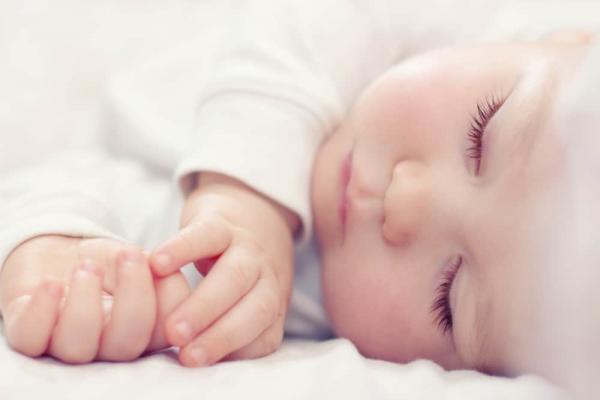
Infants and sleep are two things that don't always go together very well, or at least not for long enough stretches of time - just ask any parent with a little one waking them up several times in the night.
Colic, teething, temperament and a myriad of other reasons can keep your infant awake when they should be sleeping. But according to a new study, there may be a way to get a little more shut-eye for both you and your baby - and the results may surprise you.
Current recommendations
Currently, the American Academy of Pediatrics recommends infants sleep in the same room as their parent(s) until age one. This way, mom and/or dad can more easily monitor the child's breathing and heart rate while their baby snoozes. It also helps to make feedings easier, especially for breastfeeding mothers.
New research on infant sleep
However, that one-year guideline may be revised after this recent study. Via questionnaire, researchers gathered data about infant sleep - where they slept, waking frequency and length between waking up. Children who were four, nine, 12 and 30 months old were monitored.
At four months old, infants sleeping independently and those sleeping in the same room as their parents had similar sleep results.
However, by nine months old, those who were in their own rooms before four months old slept about forty minutes longer than room sharers, and twenty-six more minutes than those who were independent sleepers later on.
It seems that there is a benefit for independent sleeping at an early age - and those results seem to last well into the toddler years.
At two and a half years old, children who had been independent sleepers since they were nine months old, slept about forty-five minutes longer than those who were still in their parents' bedroom at nine months old.
The study's conclusion
The study concludes that extended room sharing means less overall sleep for your child: "Room-sharing at ages 4 and 9 months is associated with less nighttime sleep in both the short and long-term, reduced sleep consolidation, and unsafe sleep practices previously associated with sleep-related death." This certainly is news to all parents who thought they needed to keep their baby in their room for 12 whole months.
Why this is important
Sleep is necessary for a healthy life. Irregular or not enough sleep in children can lead to obesity, ADHD symptoms and attention difficulties, emotional disorders, learning problems and even increased risky behaviors in teenagers, according to Smart Parenting.
The risk of SIDS after six months old does go down, so the need to have your baby near you throughout the night for monitoring also goes down. Of course, using a baby monitor long after the six month mark might help soothe a worried parent's mind.
Babies and parents both need sleep. Varying circumstances and overall health can affect how much sleep we get at night. But for healthy infants, it may be best to move them to their own room before four months old to optimize sleep for you and your baby.
Despite the results of this study, it's important to discuss with your pediatrician (and follow parental instincts) about what is best for your baby.

